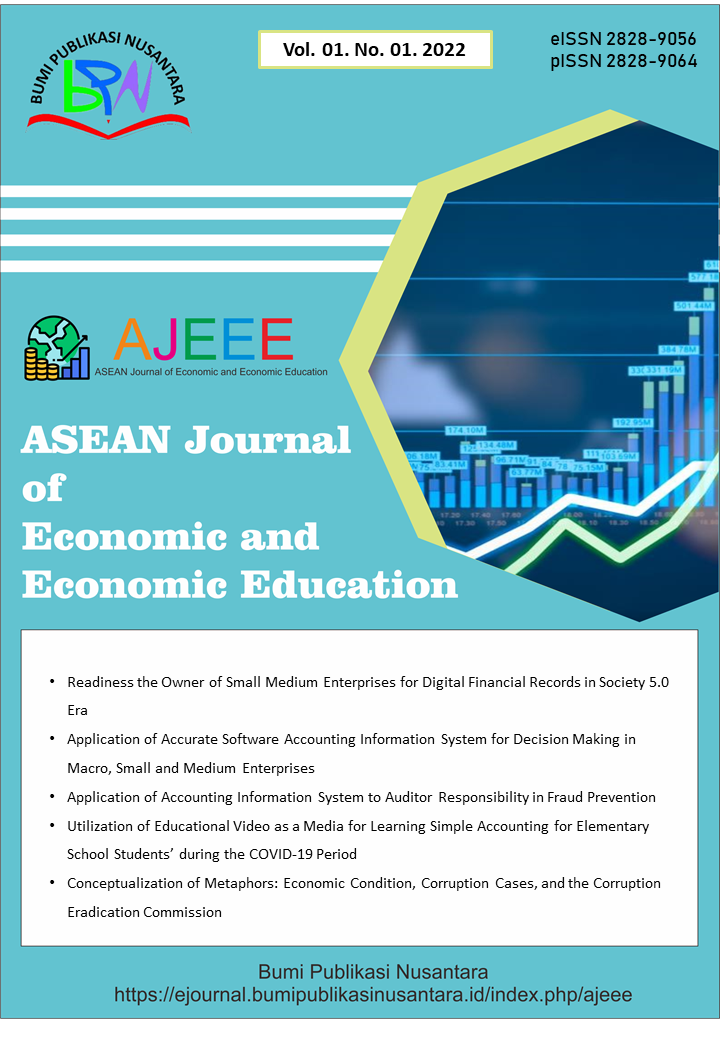Stakeholder’s Perceived Reasons for Decentralization Reform in School-Based Management
 ),
),
(1) Al-Hikmah University Ilorin
 Corresponding Author
Corresponding Author
Abstract
Keywords
References
AL-Momani, M. O., and Rababa, E. M. (2022). Mixed education and quality standard in the university teaching: A theoretical study. Indonesian Journal of Educational Research and Technology, 2(3), 155-174.
Annisa, V. N., Nandiyanto, A. B. D., Kurniawan, T., and Bilad, M. R. (2022). Time management implementation in daily activities during pandemic. Indonesian Journal of Multidiciplinary Research, 2(1), 77-82.
Cabardo, J. R. O., (2016). Levels of participation of the school stakeholders in the different school-initiated activities and the implementation of school-based management. Journal of Inquiry and Action in Education, 8(1), 81-94.
Gamage, D. T., and Zajda. J. (2005). Decentralization and school-based management: A comparative study of self-governing school models. International Journal of Educational Practice and Theory, 27(2), 35-58.
Glushchenko, V. V. A. (2022). General theory of organizational behavior: An educational perspective. Indonesian Journal of Multidiciplinary Research, 2(2), 453-468.
Hawkins, J. N. (2000). Centralization, decentralization, recentralization, educational reform in China. Journal of Educational Administration, 38(5), 442-454.
Jizat, N. A. M., and Sulong, M. S., (2021). Lecturer perspective on informal learning activities. Indonesian Journal of Educational Research and Technology, 1(2), 23-26.
Kurniati, P. S., Sholihin, I., Winarta, R., and Insan, M. H. (2021). Information technology policy through the E-government programs in improving public services quality. International Journal of Computer in Law and Political Science, 1, 1-8.
Omran, L. (2019). School-based management in public schools as perceived by principles in karak directorate of learning and education. International Journal of Quantitative and Qualitative Research Methods, 7(4), 1-10.
Onia, S. I., and Ramadan, A. F. (2023). Policy for distance learning in education in higher education institutions: Experiences from Sudan. Indonesian Journal of Educational Research and Technology, 3(1), 59-68.
Pepugal, E. T. (2022). Levels of perception on school-based management implementation in San Luis national high school. Philippines American Journal of Multidisciplinary Research and Innovation, 1(4), 26-34.
Rose, P. (2003). Community participation in school policy and practice in Malawi: Balancing local knowledge, national policies and international agency priorities. Compare, 33(1), 47-64.
Shaffiyah, I., Dwiyanti, V., Masek, A. (2022). Smart city and society 5.0: Involvement of information technology in the development of public service systems in Indonesia. ASEAN Journal of Community Service and Education, 1(1), 31-42.
Sukmawati, D., and Maryanti, R. (2022). Development of education and economic circulation in supporting local potential as community empowerment efforts amid the Covid-19 pandemic. Indonesian Journal of Multidiciplinary Research, 1(2), 235-250.
Supriyadi, A., Wang, T., Juwita, M., Gunaningrat, R., Safitri, S., and Cirella, G. (2021). Sustainability policy in Indonesia: Case study economic structure and determinants in Banjar municipality. International Journal of Informatics, Information System and Computer Engineering (INJIISCOM), 2(1), 25-46.
Widianti, R. I. L., and Undang, S. U. (2022). Conceptualization of metaphors: Economic condition, corruption cases, and the corruption eradication commission. ASEAN Journal of Economic and Economic Education, 1(1), 35-40.
Article Metrics
Abstract View : 1121 times
: 1121 times Download : 603 times
Download : 603 times
Refbacks
- There are currently no refbacks.
Copyright (c) 2023 Bumi Publikasi Nusantara

This work is licensed under a Creative Commons Attribution-ShareAlike 4.0 International License.



_publication_ethics1.png)



